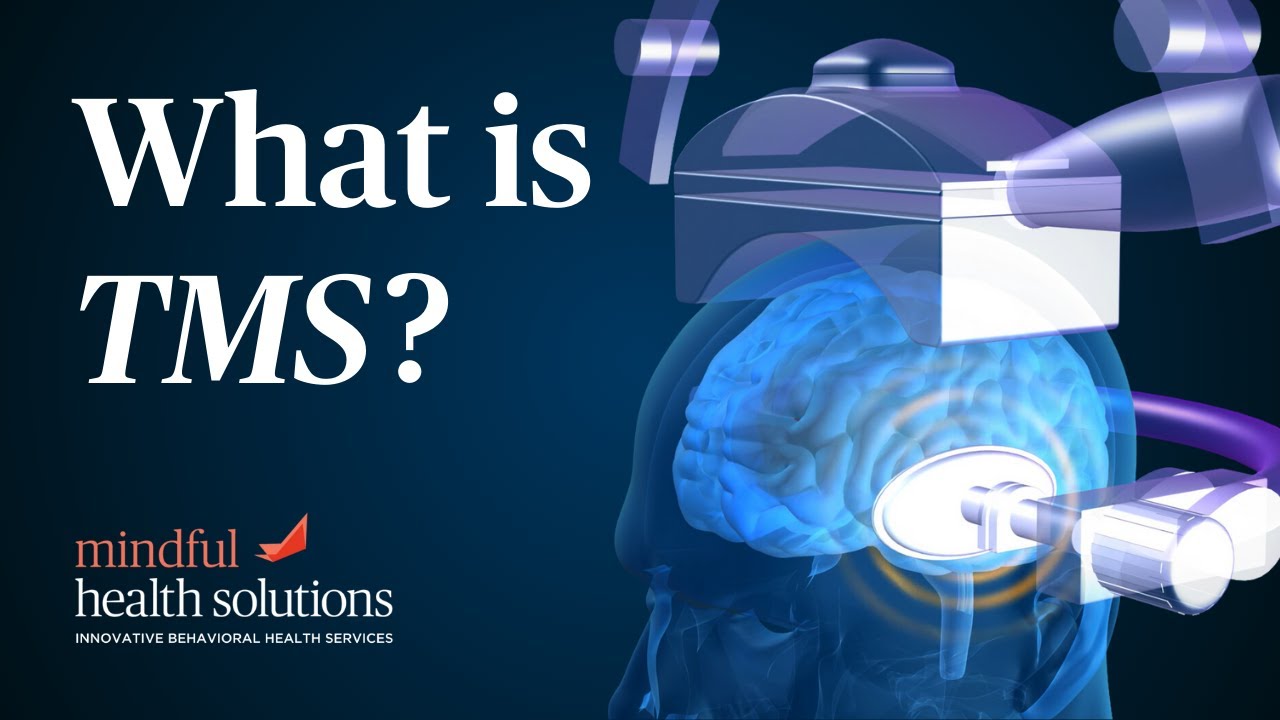Transcranial Magnetic Stimulation (TMS) is increasingly recognized as a valuable treatment for depression and other mental health conditions. While it’s known to cause some side effects like scalp discomfort or headaches, other, less common effects might surprise you. This article dives into these unique side effects, including one particularly positive outcome you might not expect.
What is TMS?
Transcranial Magnetic Stimulation, or TMS, is a non-invasive procedure that uses magnetic fields to stimulate nerve cells in the brain to improve symptoms of depression and other mental health issues. The treatment involves placing an electromagnetic coil against the scalp near the forehead. The electromagnet painlessly delivers a magnetic pulse that stimulates brain cells associated with mood control and depression.
TMS is typically used when other depression treatments haven’t been effective. This treatment method has been researched extensively and is FDA-approved for treating depression. It has also shown promise in treating other conditions, including anxiety, PTSD, and certain types of chronic pain.
The process for receiving TMS therapy usually involves sessions that last about 15-20 minutes, 5 days a week for 4-6 weeks. There is also an accelerated TMS treatment option that let’s you receive multiple sessions in one day and complete the full course in just two weeks. Patients do not require anesthesia or sedation and can resume their normal activities immediately after each session. The ease of treatment and non-invasiveness are significant benefits for many patients.
TMS Side Effect 1: Changes in Sleep Patterns
A notable side effect of TMS therapy that some patients experience is a change in sleep patterns. This can range from insomnia to an increased need for sleep, including more vivid dreams. While this can be unsettling, it’s generally temporary and can be managed with guidance from your healthcare provider.
These sleep changes are thought to result from TMS’s effect on the brain’s regions involved in mood regulation and sleep. Patients might find comfort in knowing that these adjustments often signal the brain’s response to treatment, potentially leading to improved overall mental health.
TMS Side Effect 2: Unexpected Emotional Responses
Some people undergoing TMS therapy report unexpected emotional responses, including sudden feelings of joy or emotional releases during or after treatment. These responses can be surprising but are typically viewed positively, reflecting the profound impact TMS can have on emotional well-being.
These emotional shifts may occur as TMS influences areas of the brain responsible for mood regulation. While unexpected, these responses are an important aspect of the healing process for many. They demonstrate the treatment’s effectiveness in restoring emotional balance.
TMS Side Effect 3: Enhanced Sensitivity to Sound
An uncommon yet interesting side effect of TMS is an enhanced sensitivity to sound. Some patients find themselves more aware of ambient noises or perceive sounds more intensely than before treatment. This heightened sensitivity usually diminishes over time and can often be managed with simple strategies, such as using earplugs during noisy activities.
This phenomenon is believed to be related to the stimulation of brain areas involved in auditory processing, highlighting the interconnectedness of sensory and emotional brain functions affected by TMS.
Have questions about TMS?
Head to our TMS FAQ page or give us a call at (844) 867-8444.
TMS Side Effect 4: Altered Taste Perception
Similarly to side effect 3, some patients report changes in their taste perception following TMS treatment, such as an enhanced sense of taste or different taste experiences. This side effect is rare and usually temporary but underscores the treatment’s broad impact on brain function.
This altered taste perception is believed to stem from TMS’s stimulation of brain areas involved in sensory processing. While surprising, it’s a harmless side effect that often adds to the curiosity and discussion around the multifaceted effects of TMS therapy.
TMS Side Effect 5: Unusual Sensations During Treatment
TMS therapy can also produce unusual physical sensations, such as a tapping feeling on the scalp or a sense of warmth during treatment. These sensations are directly related to the magnetic pulses and are completely normal, although they may be unexpected.
Patients typically find these sensations to be mild and become less noticeable over time. They serve as a reminder of the impact TMS has on the brain, offering a tangible connection to the treatment process.
TMS vs. Antidepressants: Which Works Best for You?
TMS Side Effect 6: Increased Energy Post-Treatment
A less commonly discussed but welcome side effect of TMS is a notable increase in energy that some patients experience after treatment sessions. This energy boost can manifest as enhanced motivation, greater physical energy, or a newfound enthusiasm for activities that previously felt overwhelming due to depression.
The reason behind this surge in energy is believed to be linked to the reactivation of neural pathways that may have been dulled by depressive symptoms. As TMS stimulates these areas of the brain, it can effectively ‘wake up’ regions that influence energy and motivation. As a result, people gain a more active and engaged outlook on life.
Patients describing this increase in energy often report a ripple effect of positive changes. They may experience improved exercise habits, better social interactions, and a stronger sense of daily purpose. It’s a profound reminder of the interconnectedness of mental and physical well-being and the impact effective depression treatment can have on one’s overall quality of life.
TMS Side Effect 7: Depression Remission as an Unexpected Outcome
While the primary goal of TMS is to alleviate symptoms of depression, what’s truly remarkable is the significant improvement in overall mental health that patients often experience. In fact, 85% of our patients report an improvement in depression symptoms following TMS. Even more encouraging is that 46% of patients experience complete remission of their depression. These life-changing results highlight the potential of TMS not just to improve symptoms but to potentially turn the tide in the battle against depression.
This outcome highlights the potential of TMS to profoundly transform lives, offering hope and a new perspective on treatment possibilities. The variability in response underscores the importance of a personalized approach to mental health treatment, tailoring strategies to each individual’s unique needs.
While TMS therapy is known for its effectiveness in treating depression and other mental health conditions, the journey comes with a range of side effects—some surprising, and one particularly hopeful. Understanding these potential effects is crucial for anyone considering TMS, offering a comprehensive view of what to expect and the assurance that most side effects are manageable and temporary.
Are you or someone you know interested in TMS therapy? We’re here to provide the information and support you need. Call us at (844) 867-8444 to explore how TMS can be part of your journey toward mental health and well-being.


